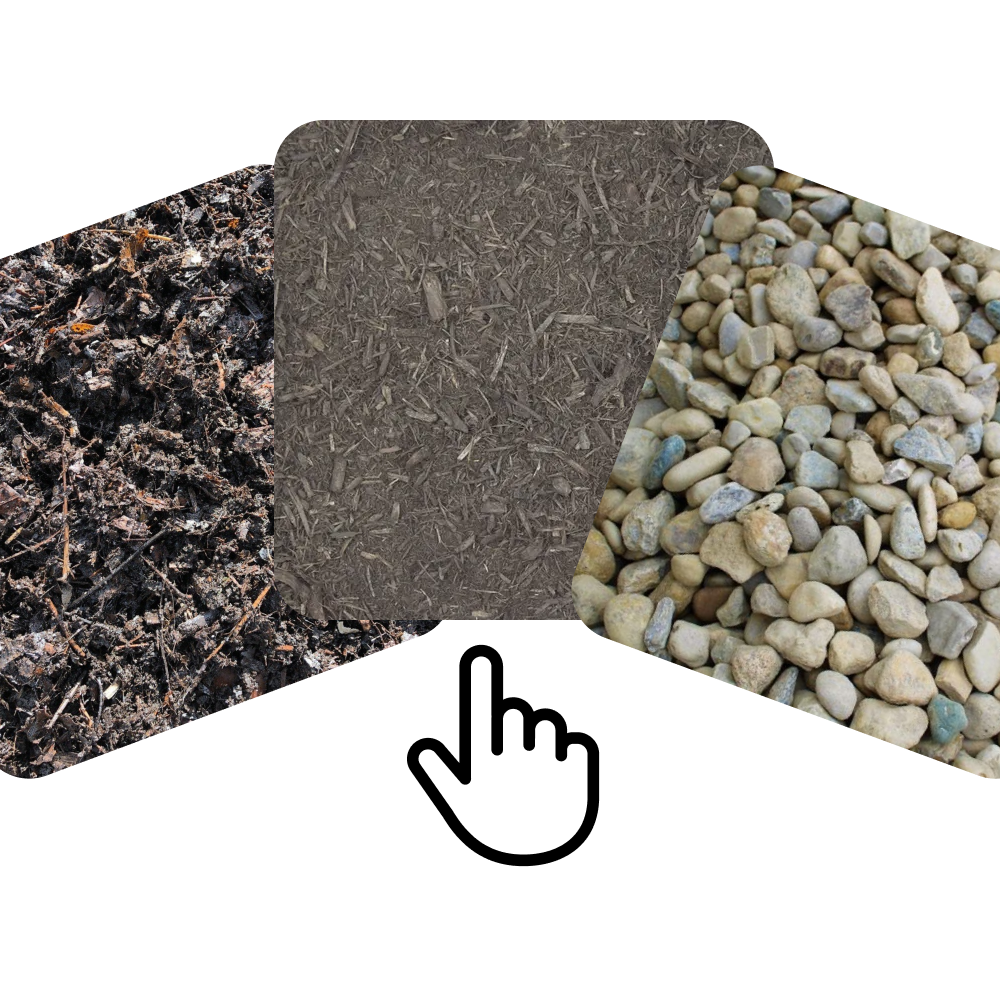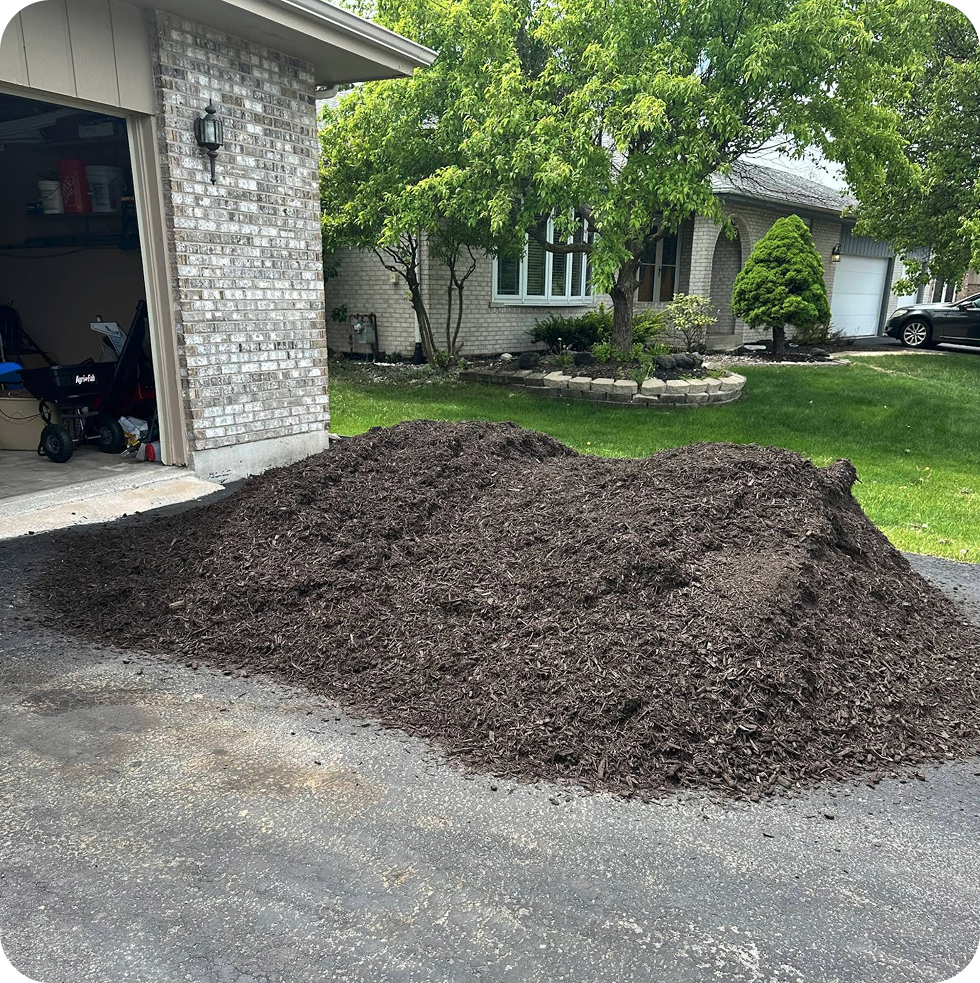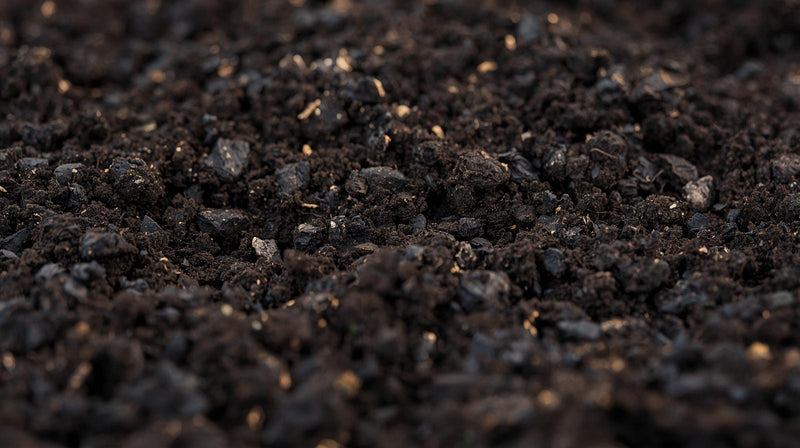
Pick your landscape material
Browse through our variety of high-quality mulch, soil, gravel, and stone options. You can use our bulk material calculator to estimate exactly how much product you’ll need for your project.
Getting your mulch delivered is simple. Follow these 3 easy steps:

Browse through our variety of high-quality mulch, soil, gravel, and stone options. You can use our bulk material calculator to estimate exactly how much product you’ll need for your project.

Once you’ve chosen your materials, select a delivery day that works best for you. We offer flexible scheduling to ensure your materials arrive right when you need them.

With everything handled, all that’s left is to sit back and wait. Our team will ensure your landscape materials are delivered promptly, ready for your Philadelphia landscaping project.
We’ve got you covered with our full line of landscape supply products, from premium mulch and quality soil to decorative stone, helping you create a cohesive, professional landscape that enhances your property for years to come.

Long-lasting color for strong curb appeal
Classic shredded mulch for clean beds
Kid-safe mulch for soft landings

Premium grade soil perfect for planting
Nutrient-rich blend for vegetable gardens
Ideal for containers and raised beds

Smooth, rounded stones for drainage and décor
Small, uniform stones perfect for pathways
Durable base material for driveways
Use our NEW bulk material calculator where you can Trace from Satellite imaging to get a quick estimate for your project without busting out the tape measure
Try Our CalculatorMake the most of your region's growing seasons with expert advice tailored to our local climate.
Apply fresh mulch after the last frost (typically mid-March)
Maintain 2-3 inch mulch layer to retain moisture
Best time for planting trees and shrubs
Plan next year's landscaping projects
Understanding Philadelphia's local climate and soil conditions helps you make the best choices for your landscaping projects. Here's what makes Philadelphia special.
Philadelphia's position where the Schuylkill and Delaware Rivers meet creates varied conditions from river lowlands to the rolling terrain of Northwest Philadelphia. Properties from historic Old City and Society Hill to neighborhoods like Chestnut Hill, Mount Airy, and out toward the Main Line suburbs deal with clay-loam soil that compacts under urban conditions. Hot, humid summers with occasional heat waves transition to cold winters with snow, ice, and freeze-thaw cycles, and the urban heat island effect downtown contrasts with cooler, tree-covered residential areas. Yards throughout the metro area need mulch that improves soil structure while managing Mid-Atlantic weather extremes.